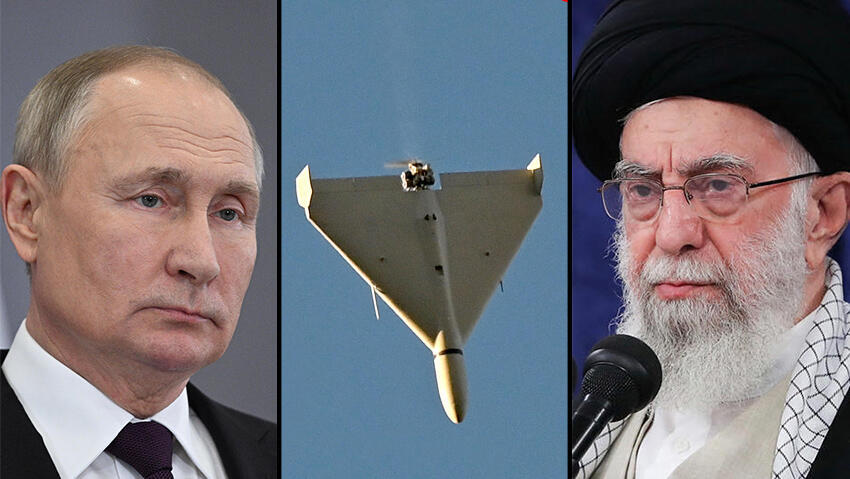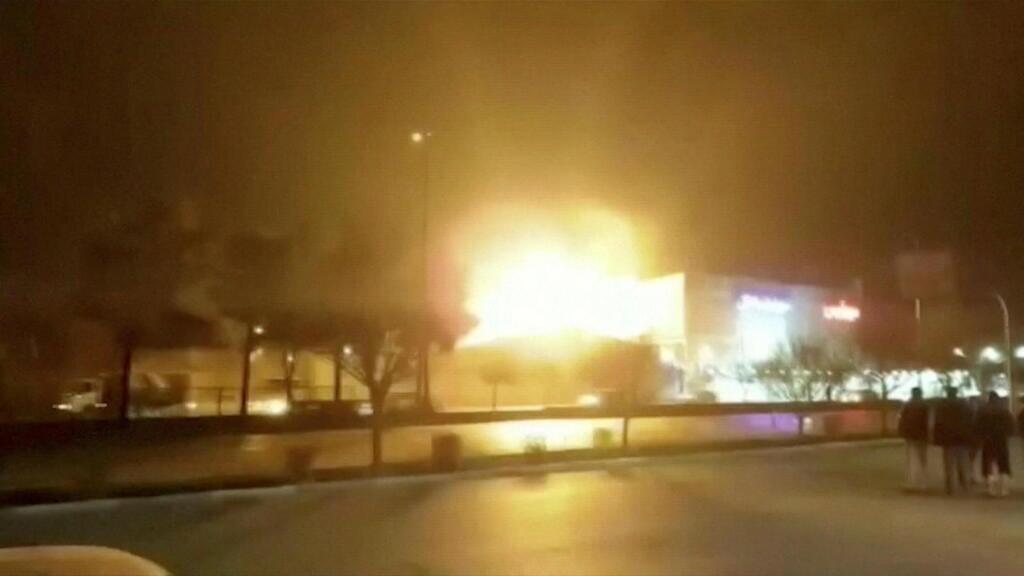Getting your Trinity Audio player ready...
A Russian delegation visiting Tehran last January was told to shelter in their hotel rooms after an Israeli strike on a weapons facility in Isfahan, the Washington Post reported on Thursday. The Russians traveled to the Islamic Republic in order to gain expertise in the production of drones as part of Russia's plan to build a massive production line that would supply the military with 6,000 UAVs, by 2025 - variants of the Iranian Shahed-136 attack drone, that is capable of traveling more than 1,000 miles.
Read more:
The report quoted an unnamed source who said the Mossad carried out a strike on a site believed to be a production hub for drones and missiles, "leaving flames billowing from the facility," prompting the Iranian officials to forbid the managers and engineers, to leave their hotel, fearing that Israel might strike facilities the group was supposed to tour.
In the article, the Washington Post revealed documents showing the Russian effort to establish a production facility in the Tatarstan region, 804 kilometers (500 miles) east of Moscow that would work around the clock on a massive production line.
"Engineers are trying to improve on Iran’s dated manufacturing techniques, using Russian industrial expertise to produce the drones on a larger scale than Tehran has achieved and with greater quality control. The engineers also are exploring improvements to the drone itself, including making it capable of swarm attacks in which the UAVs autonomously coordinate a strike on a target," the Post said.
Russia and Iran struck a deal last November, to produce self-detonating drones at the Albuga Special Economic Zone, in the Tatarstan region. "The cooperation included the transfer of designs, training of production staff and provision of increasingly hard-to-source electronic components," the post said. "Tehran agreed to sell Moscow what is effectively a franchise, with Iranian specialists sharing project documentation, locally produced or reverse-engineered components and know-how.



